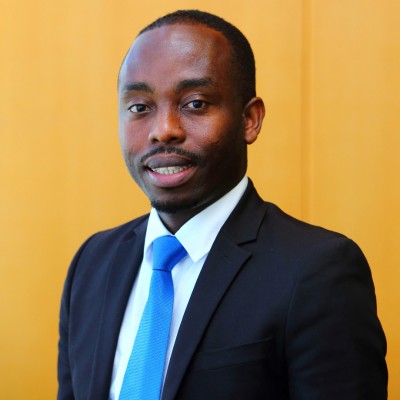
Felix Owusu
Lingnan University takes a pragmatic approach to research by blending theoretical insights with real-world application
In a world of rapid technological change, attitudes to academic research have evolved beyond the accumulation of theoretical insights to place more emphasis on real-world application. Lingnan University in Hong Kong encourages its researchers to look at the theoretical and practical dimensions of their studies to enable them to make meaningful contributions to society.
Felix Owusu, who recently completed his PhD in business at Lingnan University, centred his research on the dynamics between audit practices, auditor litigation risk and corporate tax outcomes, with a key focus on the auditor’s role in managing tax risks. The advice he received from the Lingnan faculty early on in his research project was to look at the real-world applications of his research.
“Bridging the gap between accounting, finance, law and economics is very complex” Owusu notes, referring to the multidisciplinary nature of his research. He acknowledges that the guidance and support he received from the university made his research journey easier and more impactful. Owusu says that his supervisor’s expertise in tax and auditing helped him refine his research project. “My supervisor encouraged me to think about an area where we could bridge the gap between auditing and taxation,” Owusu explains.
Lingnan offers courses such as academic writing and research methodology so that students can hone their research skills. Owusu says this particular course, which is available to first year master of philosophy and PhD students, helps them to adopt research methodologies from other disciplines by borrowing big data and qualitative and quantitative methodologies.
Owusu’s original research proposal focused solely on corporate governance. This course equipped him with the skills needed to take a multidisciplinary approach and extend the scope of his research project. He adds that the liberal arts students at Lingnan are introduced to tools such as the programming language Python, statistical software package Stata, IBM’s Statistical Package for Social Sciences and other data management software to bridge the skills gap in working with data. “This equips them with skills to effortlessly integrate topics across disciplines and take an interdisciplinary approach to their research.”
The university sponsored Owusu to attend and present papers at international conferences in countries such as the US and Norway. Such exposure facilitated meaningful interactions with experts and provided him with practical insights. “Because my work is set in the US, I needed to go to the US to speak to the experts there to understand how the mechanism that I am looking at really works,” explains Owusu. “Sponsoring those trips really helped me a lot and that is something unique to Lingnan.”
Engaging in experiential learning at the university enhances employability for students, and Lingnan offers training for students to serve as tutors or instructors. During the final year of his programme, Owusu was tasked with managing the delivery of an entire academic module. He adds that it was more than just organising tutorials for students. “You are given the whole course to handle by yourself. To teach it, set exam questions, grade students and do everything just as the professor.”
The university not only prepares students for success in the professional environment but also encourages their participation in community activities to instil a sense of civic duty and prompt them to contemplate the challenges facing society. Lingnan stands out as an educational institution by supporting its students to find ways to create greater societal impact and contribution through their research, Owusu concludes.

